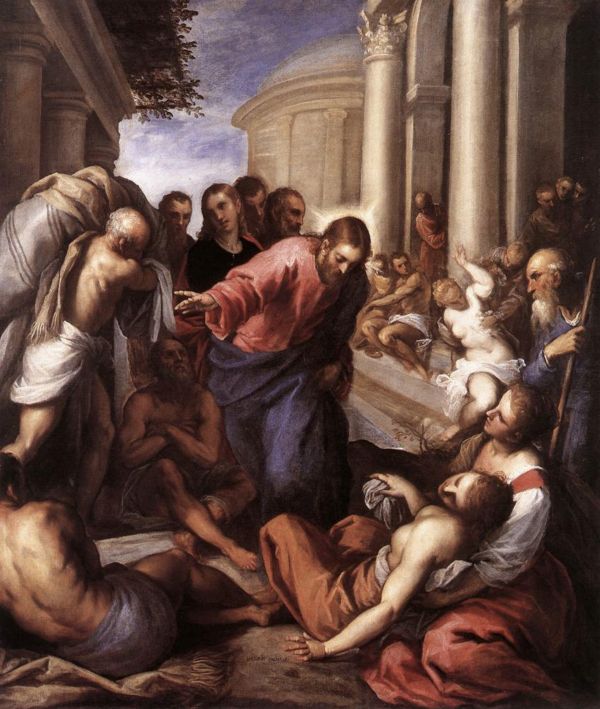Jesus lectures the Sabbath worshippers with facts.
Respecting that day was more important than life, than the person himself, placed on the periphery, prone at the feet of the sacred laws.
Life can wait, for these Pharisaic worshippers; but according to Jesus, this is not so, and he proves it.
Even for Francis it was not so!
The man of God, from the very beginning of his calling, put in first place the person to be saved and for whom Christ died and rose again.
How many times, in his humility, did he prostrate himself before his sick, poor brothers, honouring the divine Presence of the Lord!
How many healed by that Charity that inflamed him and directed him on his way!
It is unthinkable that Francis was a bearer of novelty and a 'slave' to the law. Deeply obedient, but free in his exquisite conscience as a creature, he had the life of all at heart.
In the Sources we find many episodes on this subject.
"In the city of Narni, at the bishop's insistence, he blessed a paralytic, deprived of the use of all his limbs, by drawing a sign of the cross from his head to his feet, and restored him to perfect health" (FF 1214).
"In the city of Fano there was a shrunken man, whose ulcerated tibiae were bent backwards and stuck to his body, and he was so malodorous that no one felt willing to take him into hospital.
He implored the mercy of the most blessed Father Francis, and shortly afterwards had the joy of seeing himself completely recovered' (FF 548).
Moreover, 'He showed great compassion for the sick and tender concern for their needs [...].
She even ate on fasting days so that the sick would not feel flushed, and she was not ashamed in the public places of the city to beg meat for a sick friar' (FF 761).
Mother Clare herself, moved by tender compassion for the sick, placed at the centre of her attention the souls for whom Christ had shed his Blood.
Indeed in the Rule:
"Those who are infirm may use straw mattresses and have feather pillows under their heads; and those who need stockings and a woolen mattress may use them [...]" (FF 2799).
When the salvation of their brothers and sisters was at stake, Francis and Clare did not make a problem of rule or day.
Charity was above everything: round the clock.
They looked to Jesus, Author and Perfecter of the Law, to which He had given fulfilment with Love, without which we are only clanging cymbals.
«That is why the Jews persecuted Jesus, because he did such things on the Sabbath» (Jn 5:16)
Tuesday 4th wk. in Lent (Jn 5:1-16)












